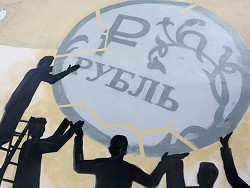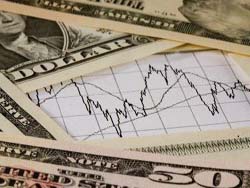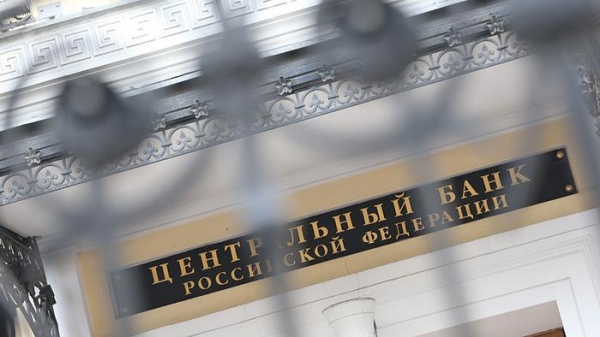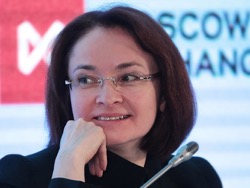Anna Komarova
 Shutterstock
Shutterstock
The pace of global inflation reduced the second consecutive month in August, its level has reached the lowest level in seven years. The growth of consumer prices in Europe does not exceed 1%, and in some of the world is deflation. This will result in a decrease in the volume of world trade and the emergence of migration barriers.
The annual inflation rate among the countries “big twenty”, which account for 85% of global production, has slowed to 2.1% from 2.2% in July, reports the WSJ, citing data from the Organization for economic cooperation and development (OECD).
This was the slowest growth in consumer prices since October 2009, then they increased by 1.7%.
Annual inflation in the countries “the big seven” (G7) in August, according to the OECD, accelerated to 0.7 percent from 0.5 percent in July. The largest increase in consumer prices was registered in the U.S. and Canada — 1.1%. But if US inflation is gaining momentum, having increased from 0.8% in July, in Canada potreban growth is slowing: in July, the inflation rate there was recorded at 1.3%.
In the European Union’s largest economy can’t reach 1% inflation in the UK potrebami in August rose 0.6%, Germany 0.4%, France 0.2%.
Deflation was recorded in Japan and Italy — 0.5% and 0.1%, respectively. It is worth noting that the last time this level of deflation was recorded in Japan in March 2011.
Inflation in Russia in August amounted to 6.9% year on year, says the OECD. This is 0.31% less than it was in July, then inflation in our country was 7.21%. About the same level of inflation (of 6.78%) were recorded in Russia, five years ago, in November 2011.
The annual rate of inflation among the 35 OECD countries, most of which are developed countries, in August rose to 0.9% from 0.8% in July. But it still falls short of the target of 2%, sought by Central banks in developed countries.
Slowing the rate of inflation in the largest and most populated developing countries, China and India growth potreban decreased to 1.3% and 5.3%, respectively.
The economy of India is the third largest in Asia and one of the fastest growing in the world. On Tuesday, the Reserve Bank of India lowered its key interest rate to 6.25% from 6.5%, reaching its lowest point over the past five years. The Central Bank explained its decision to a significant slowdown in global growth and favorable forecasts regarding inflation, adding that inflation “has opened a space for political action,” reports The Financial Times.
Chief economist of Yes Bank Shubhada PJSC believes that the Reserve Bank of India exploited the situation to reduce interest rates, the WSJ concludes.
Low inflation is a concern not only for economists but also politicians, in their opinion, this situation hampered economic recovery.
When inflation is low, companies, households and even governments difficult to reduce the debt load, in particular, this is a problem for a number of countries with high debt in the Eurozone, notes the WSJ. While very low inflation or falling prices can contribute to real income growth, it also prevents the increase in spending and investment by households and companies.
“Short-term risks to global financial stability have declined in April 2016, — noted in his report of the IMF. — However, financial institutions in advanced economies are facing a number of cyclical and structural problems, therefore there is a need for low interest rates. Low interest rates and investors in search of higher returns on their investments allow companies with a high level of debt to restructure their balance sheets and reduce the burden of high debt levels”.
In addition, the IMF noted the unstable political climate in many countries, which contributes to the development of economic volatility. “To avoid financial and economic stagnation can only be achieved using a balanced combination of stable politics and economic development of the country,” write the experts of the IMF.
“Sustainable stagnation, especially in developed economies” could stir up “populist appeals” to restrict trade and immigration, warns the international monetary Fund.
Moreover, with inflation declining and the level of world trade: according to the forecast of the world trade organization, world trade will grow in 2016, slower than expected — only 1.7%. The previous April forecast assumed a growth of 2.8%. The forecast for 2017 was also revised — it is expected that global trade will rise in the range from 1.8 to 3.1%, projected growth of 3.6 percent.








